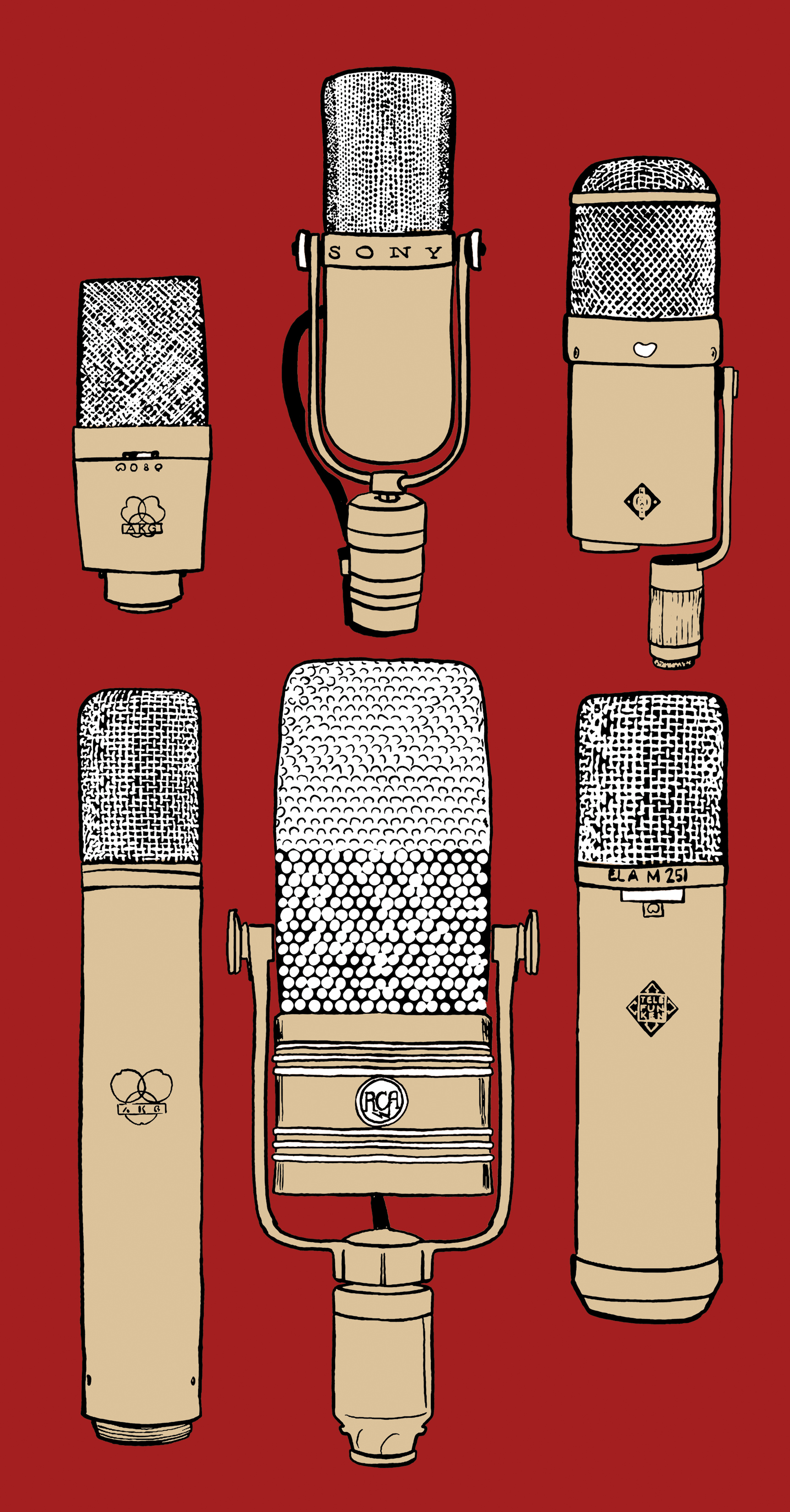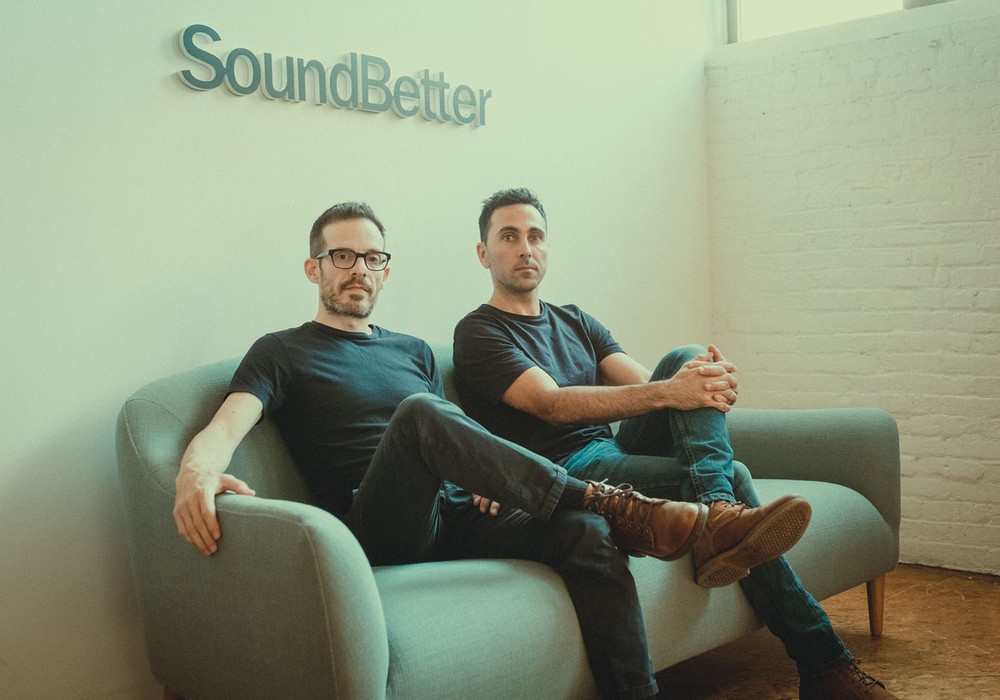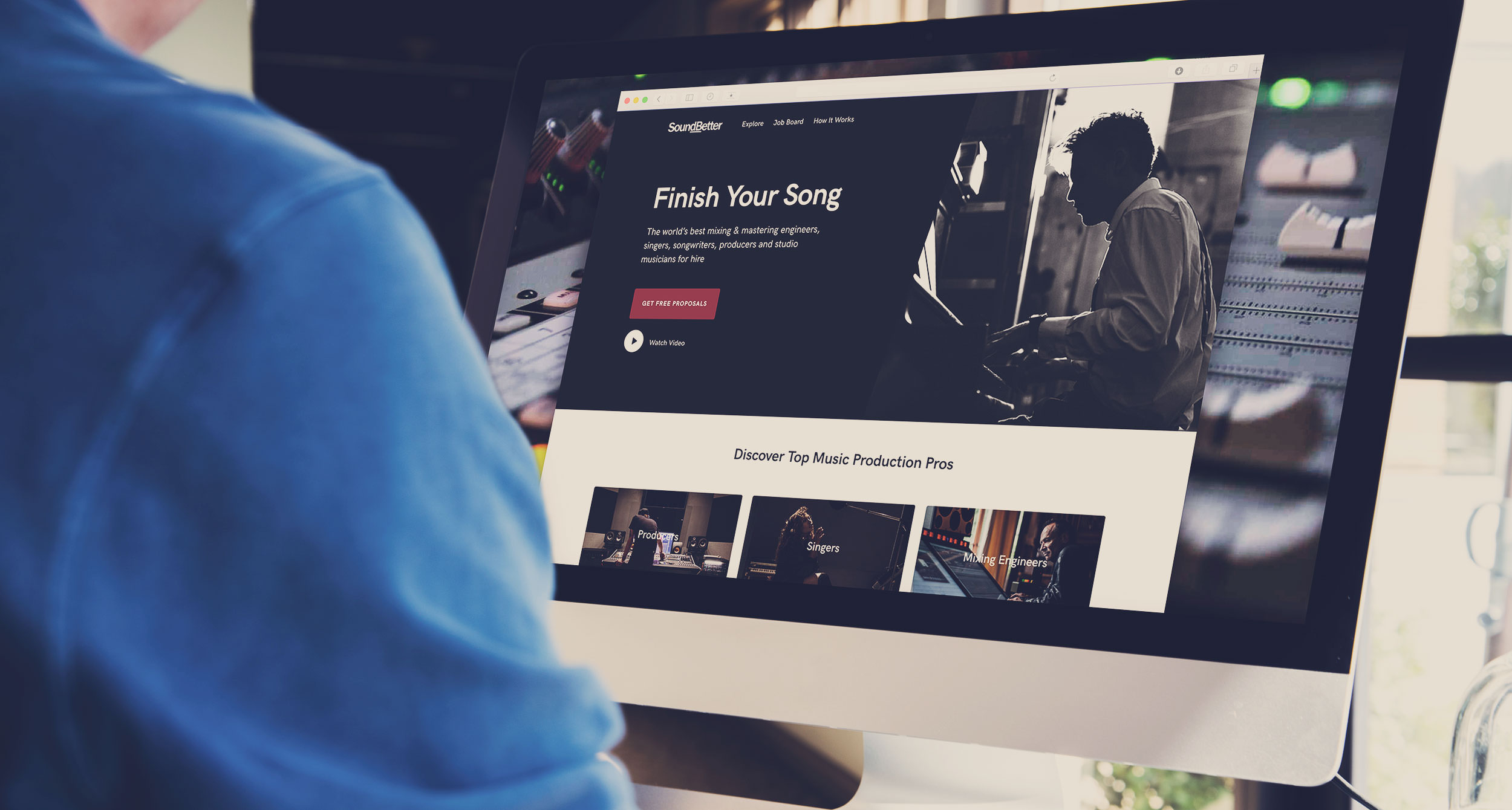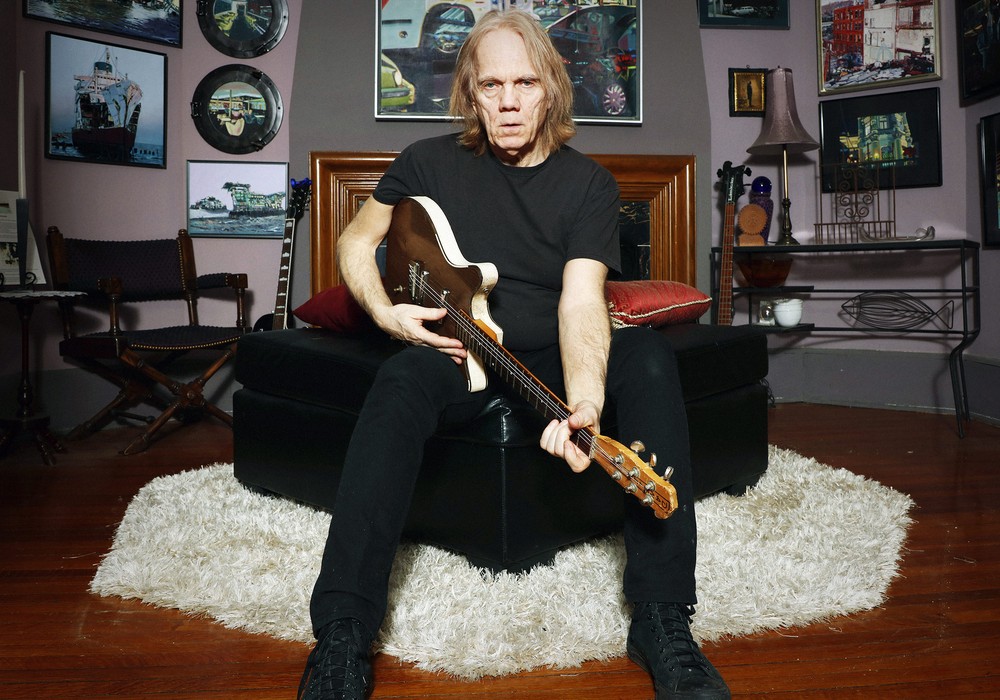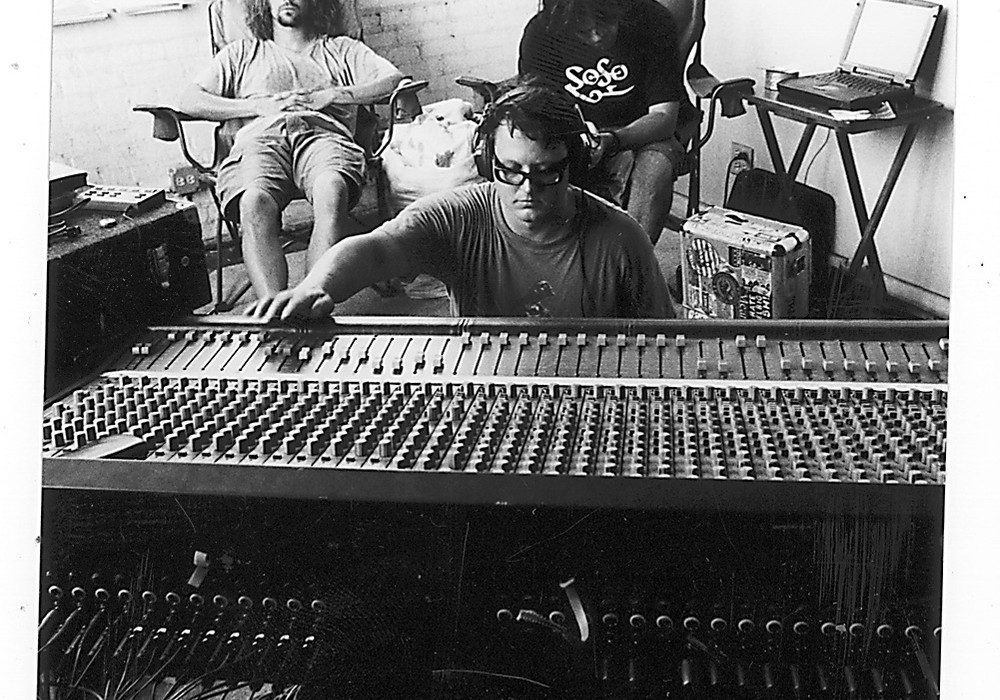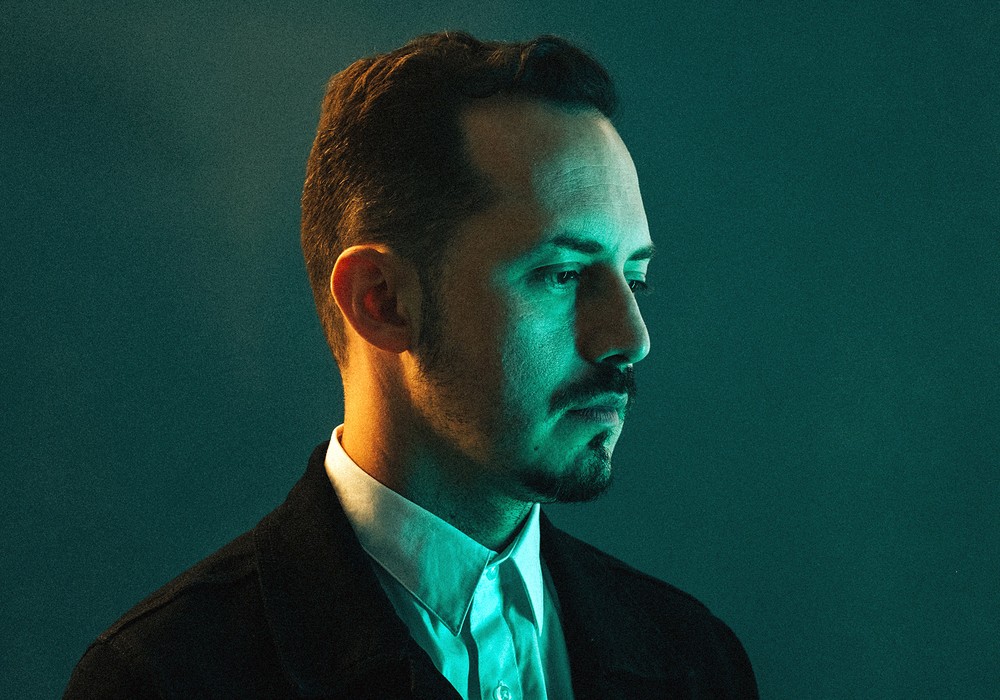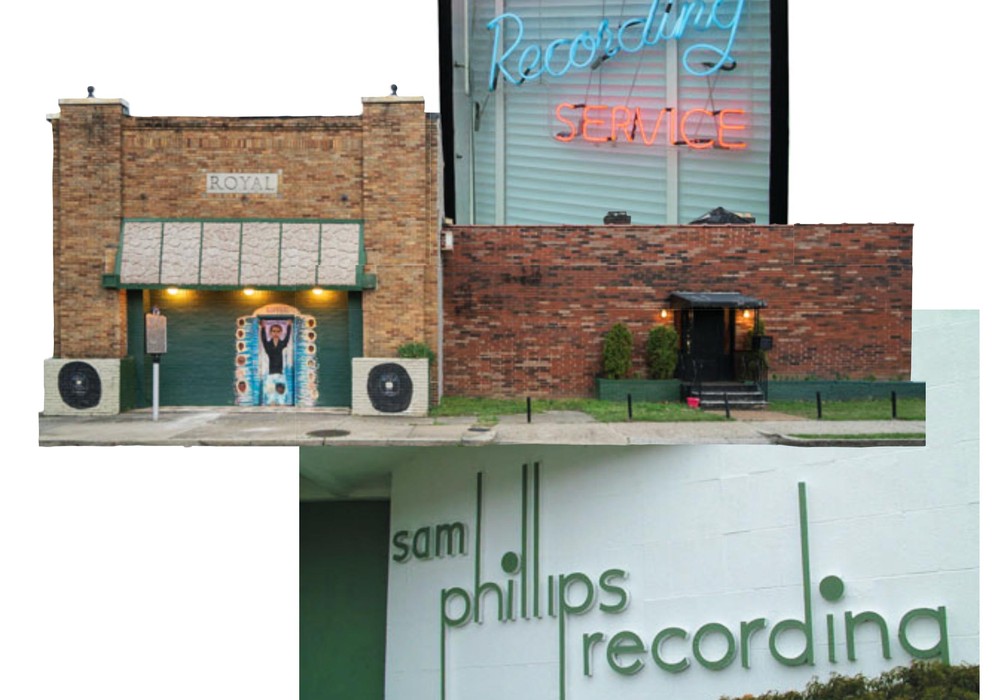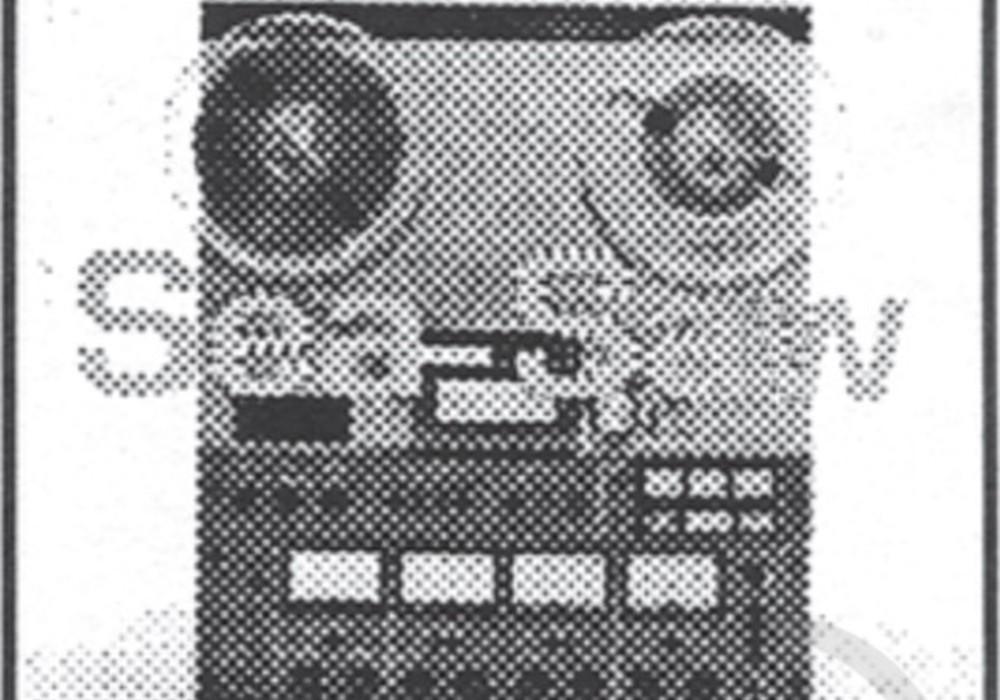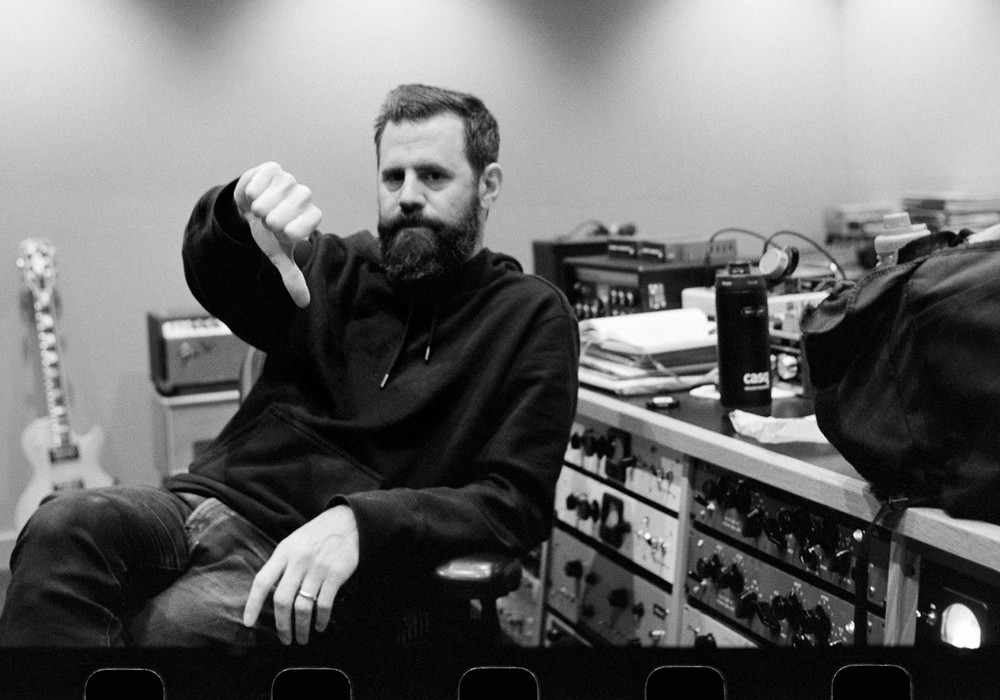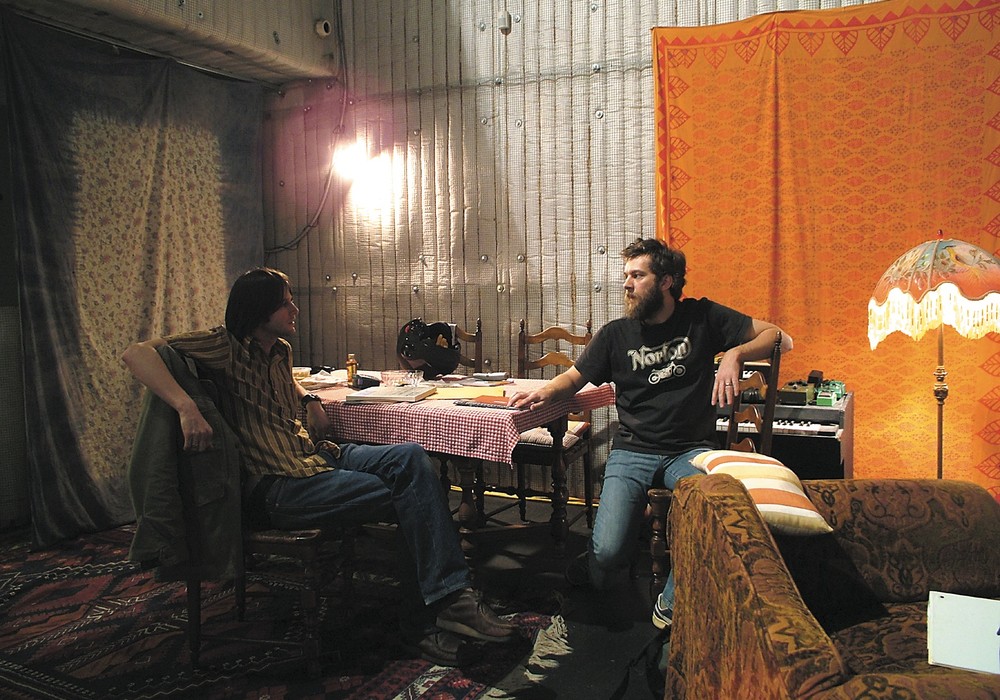SoundBetter Founders Shachar Gilad (Left) and Itamar Yunger (Right).
In 2013 I met up with Shachar Gilad, the founder of SoundBetter, to talk about the new business he'd started, connecting people involved in the music recording process. Now, over five years later, SoundBetter is doing brisk business. (If you are one of the people I run into that complains you don't get enough studio work, especially mixing or mastering, this is something to check out.) I've received several jobs through here, and made bids on a few that sounded interesting, and it works. Payment is secured through SoundBetter, and when everyone is happy you get paid. I felt like mix jobs were finding me that I would normally never get. It's an interesting service, and I wanted to know more.
How did SoundBetter get started, and when?
In 2012 I had a good friend - a pretty well-known engineer - who asked me to build a website. The idea was to promote himself and get projects. I did, but it was quite a bit of work. I thought to myself, "If every engineer or producer has to go through this - finding a designer, finding out how to build the site, integrate payment, checkout, and all this - it's crazy!" Musicians would ask me for recommendations, so I knew clients were looking to connect with pros like him. At the time, my brother, who's a very experienced businessman also, was chatting with me through these ideas. We came up with the concept together. We felt like the timing was right; people were becoming more accustomed to working through marketplaces, like Uber or Airbnb. If both sides are looking for each other, it shouldn't be too hard. I had some tech and music production experience, so I felt I might be the right guy to pursue this. I was a musician and engineer for some time; I'd worked at Apple on their music production tools and was at Waves for several years.
Once you found it, it's an obvious idea. There's a need.
I knew that I wanted to move fast. I wanted it to be a web app, and I figured Ruby on Rails was the hot language at the time for [building] these kinds of web apps. I knew that in Poland there were good Ruby dev shops, so I flew to Poland and interviewed a few dev shops. I found one I liked in Krakow, so I stayed on location and hired them to help me develop a minimum viable product. I was self-funding it - I was the sole founder. I stayed with them for a couple of months while we were building the first iteration, which was initially a directory of mostly mixing and mastering engineers. I had this directory, but there weren't a lot of freelancers on it yet. Imagine having a Yelp, but without any restaurants? I was trying to get the word out. How do you start?
People are skeptical.
Exactly. I called an engineer friend of mine in L.A. - who is well-known - and said, "If I put on an event, would you be willing to take some questions via Skype?" The closest creative hub to where I was at the time was Berlin. I called a recording studio in Berlin to host it. After they said yes, I called an audio school, SAE in Berlin, and said, "Would you co-sponsor it? All you gotta do is mail your students and alumni." Next thing you know, people are starting to hear about it and are signing up for the event. I called a local pro audio dealer. Then I called Recording Magazin in Germany and invited them. It was a small thing, but beyond the 60 people who showed up to the event, there were thousands of people who had now heard about it. It worked, so I did the same thing in New York and London. Then I came to L.A. for NAMM. You remember me trying to hawk this. The feedback I got at the beginning, at least from engineers, was like, "If you can get us work, great!"
There's no engineer who's going to say, "No" to work, generally.
Exactly. Getting the engineers on board wasn't the hard part. The hard part was getting the clients. I did all kinds of creative marketing to bring in clients. After my co-founder, Itamar Yunger, joined me - a little over one year in - we built out a real marketplace with payment facilitation, and a workroom. I think it's really important, because a lot of the work, kind of as we expected, was remote. Being able to facilitate the payment and add a layer of trust was a big part of this. It wasn't just to facilitate discovery. If this marketplace can reduce the anxiety for the provider and the client about doing this transaction remotely, that's important.
You guys hold the payment from the person who's requesting the work?
Yes. You don't want to get stiffed. Half of what managers do for engineers and producers is making sure the money gets collected. We want to address the anxiety both sides have. Clients also have concerns, "If I send this person money, they could just ignore me or do some half-baked job."
I've heard stories like that.
Right. And the payment is only one side of the trust. The fact that you know you're going to get a review at the end makes the providers put in extra effort. When it was time to build out the marketplace features, I needed to find a technical co-founder who would join on faith and on equity, since I was still self-funding SoundBetter. Itamar Yunger is super, super talented. He's been my partner on this since a year after it started. Since then, we've been cranking away, focusing on growing the user base while improving the product, and adding all these features. File transfer, project management, tools; where as an engineer, producer, or singer you can see all your projects, what stages they're in, add labels to them, with a dashboard. We've been consistently growing. The amount of transactions is now at thousands per month. We've delivered more than 12 million dollars worth of work to providers on the platform. People are earning a living from it. Creative pros on the platform have quit their day jobs, earning consistent income as freelancers from clients they wouldn't have connected with otherwise, and often from other countries.
What other services are offered on there?
There's obviously mixing, mastering, and producing. Singing has become a big one. In the EDM world, a lot of people create tracks and then need someone to sing the top line. It could be any kind of genre of music, but in electronic music - even urban or hip-hop - you might want a vocalist to sing the chorus. That's been a really big one lately. Also, songwriters.
Songwriters? In what way?
Say you're an EDM producer. You create the track, and you want someone to write the top line.
A melody, lyric, or a vocal part.
Exactly. That's been big. We've had people from other sides of the world. I had a guy from London and a guy from L.A. that co-wrote, and the song ended up getting nominated for some awards. It's growing faster than we anticipated! We've seen some pretty amazing success stories: Artists who got hired on SoundBetter and ended up getting flown out for tours. Many musicians - who had hired folks on SoundBetter to help them with a song - have gotten tens of millions of plays on Spotify. We have everything from green clients, where it's their first time hiring a pro, to known label acts and production houses who use SoundBetter on a regular basis.
There are musicians for hire on SoundBetter?
Yes. Great musicians. The drummer from OK Go [Dan Konopka] has been doing a lot of work lately. The session bassist Sean Hurley just joined. Chuck Sabo, who's the drummer from Natalie Imbruglia's "Torn," and many others. Some people might be surprised, but these pros want to work with independent artists.
And how many of them have private studios where they can work out of any time they need?
Almost all of them.
I've done so much mixing for people from home studios. Mixing isn't as easy as a beginner might initially think.
Many artists try at the beginning. Then they realize it's an art form. I think it's a lesson I learned when I started home recording. Some say, "I'm going to dive in and become an expert." But most end up saying, "I'm going to focus on the music and hand this off to a pro."
I never master my own mixes! There are ways that a mixer like myself can pay to have more info on my page, right?
Any music production professional can sign up to SoundBetter and create a Basic profile for free. They will have the ability to post sound samples, photos, a questionnaire they can fill out, and they can get hired. If they get hired through SoundBetter, we keep a small five percent commission. But we also have a tier called Premium Providers, with a monthly fee. The main advantage of Premium is more visibility - the Premiums show up above the Basics. Also, there are two ways to get hired on SoundBetter. One is that people find your profile, hear your sound samples, see the credits, and then decide they want to work with you. Placement and visibility is a factor. The second way - probably 30 percent of the work on the platform - is where clients don't want to find and contact a specific person, so they post what they need done and get several proposals back - that's the Job Board. We limit the amount of proposals clients get to five so that they don't get overwhelmed. The only providers who have access to that job board, and can send proposals to those, are the Premium Providers. That's the second advantage of being Premium. So, both Premiums and Basic (free) members get work, but Premiums can get more.
How does one become a Premium Provider?
We actually vet the people who want to be Premium, and we accept less than 5 percent of those who apply. We want to make sure they are experienced, have a back catalog, are friendly when we communicate with them, are going to respond to people quickly, and that they're actually interested in doing the work here. We want to make sure their sound samples are good, and their profiles are complete. It has to be someone presentable, that we feel good about entrusting to clients. In addition, we also want to keep a balanced marketplace, so we bring on new Premiums in particular categories only as we grow the amount of jobs we intake in those categories. We don't want to just take folks' money if we can't provide work for them. It's about skill, experience, service orientation, and marketplace need; and it's all curated by folks on our team.
Wow, I assumed it was automatic. How many people are signed up at SoundBetter?
We have over 100,000 providers on the platform worldwide, and hundreds of Premiums.
I like this concept for people who are doing good work but can't market it well.
This is the channel. If they're good at what they do, service-oriented, into it, and active, then clients walk away happy. There are a lot of people who don't have the good fortune to be in the right physical place to earn big credits. If somebody gets lots of reviews on SoundBetter, it really means something. They build their online reputation and that has value.
What do you see for the future? Are there services you want to expand?
We're working hard. We just launched the ability for producers and songwriters to license their tracks. Backing tracks for pop songs, beats for rappers, EDM music, ghost production tracks, and cases like that. The tracks are carefully curated. You're not going to have to sift through 10,000 tracks to find something. A lot of producers have tracks, perhaps ones they started for a client, or for themselves. They can put them on SoundBetter and see if someone wants to license them. Artists love being able to license or buy tracks and then write and record a topline to it and release it, rather than ask a producer to produce a track from scratch. There's less anxiety that way about the final result - if they love it, they license it. That's how many pop, R&B, and EDM tracks happen at the top of the industry as well. Artists pick from a pool of tracks and write to them. Now any artist can do that online, affordably, with tracks from great producers on SoundBetter. As a producer, you can wake up to find you licensed a track when you were sleeping, which is pretty great! r
